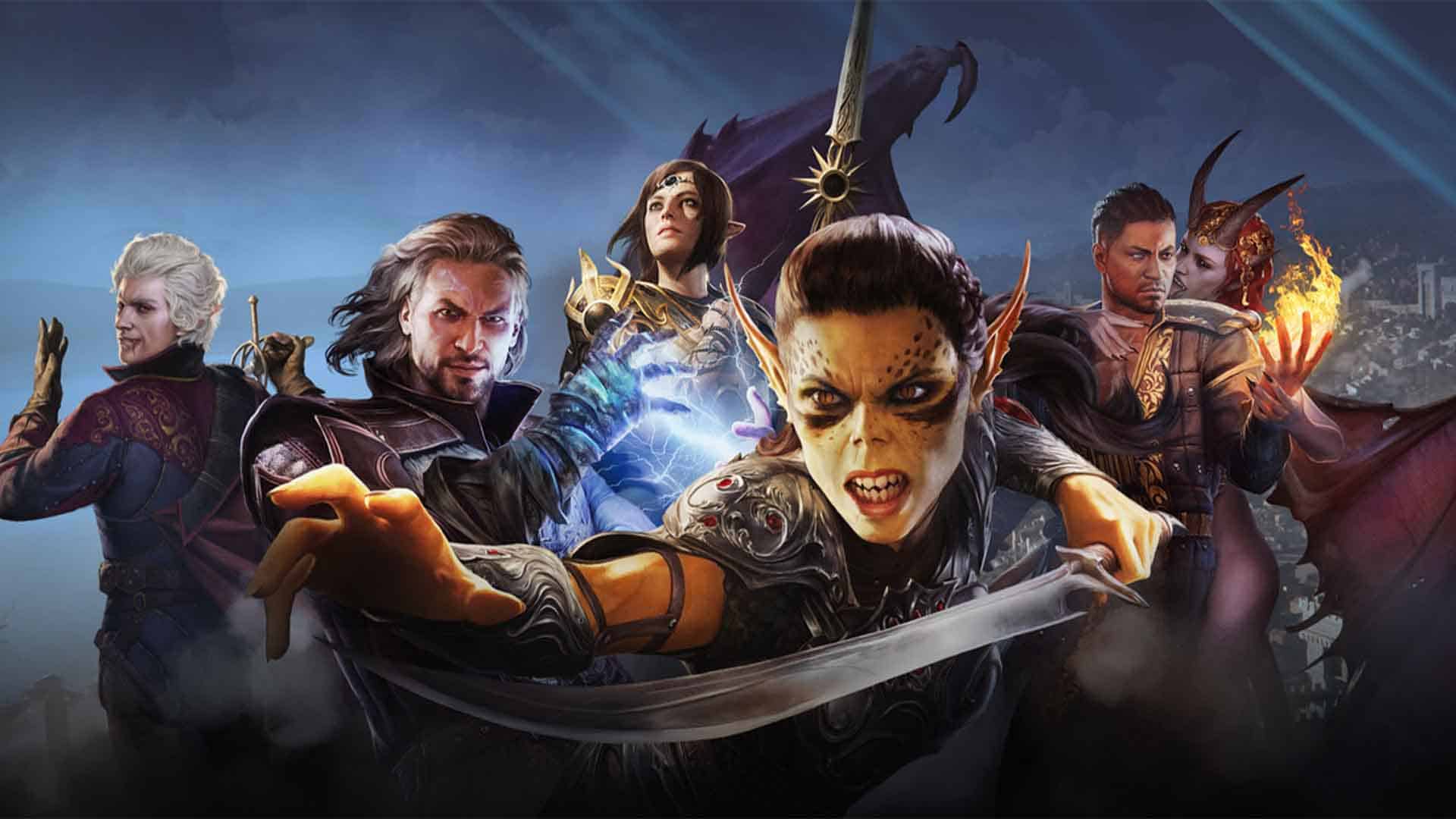Following its inaugural broadcast in 2014, Geoff Keighley’s The Game Awards now stands as one of the most prestigious industry events in video games. While the show largely revolves around trailers and world premiers of titles that have yet to release, ratings for The Game Awards indicate that the show is one of the more popular and well-known awards events for video games alongside the BAFTA and Golden Joystick awards shows. In the wake of E3’s demise and the industry’s continued growth into becoming a major pillar of the entertainment industry, Geoff Keighley’s shows (the Summer Games Fest and The Game Awards) stand as two of the more important industry showcases each year, and The Game Awards tradtionally do a great job of honoring innovation and excellence in the medium of video games.
Looking back at the winners of the coveted “Game of the Year” award from each year that The Game Awards has been broadcast shows a veritable “who’s who” of all-time greats. From RPGs and survival-horror games to open-world action-adventure titles, The Game Awards seems to follow popular opinion regarding players’ impressions of the year’s best games. With very rare exception, the winners on this list are all titles that hold a very positive critical and commercial reception, even if player perception of their greatness may have cooled when looking at some of these titles in a modern context. Regardless, each of the winners of The Game of the Year award showcase what are arguably the best titles from their year of release.
Dragon Age: Inquisition (2014)
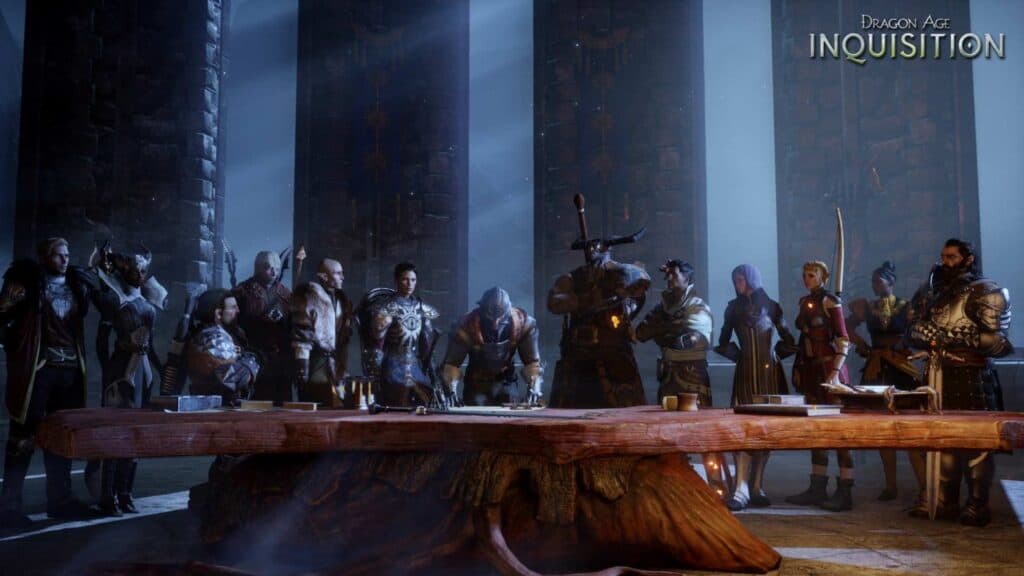
The very first Game of the Year award winner is Bioware’s incredible Dragon Age: Inquisition. After the brilliant Dragon Age: Origins, Bioware would continue the franchise with the polarizing Dragon Age II. What made many fans mixed on Dragon Age II was its abandoning of the series’ deep RPG mechanics and complex systems in favor of a more approachable action-RPG gameplay style, and most fans felt like this was a critical misstep on the part of the developer. Thankfully, Bioware’s ability to learn from its mistakes as a studio would lead to it crafting what is arguably the best game in the Dragon Age series with Inquisition.
Almost 10 years prior to Baldur’s Gate 3 winning Game of the Year, Dragon Age: Inquisition would come along and showcase that there was still plenty of life left in the CRPG design of games like the original Baldur’s Gate (another Bioware classic). Inquisition embraces the RPG mechanics of the first game in the series and takes them one step further by placing an emphasis on forming deep bonds with party members and navigating interpersonal relationships with the same care that’s necessary for the game’s sweeping tale of war and conquest against otherworldly forces. 2014 would see the release of some truly incredible games, but Dragon Age: Inquisition‘s return to series form would stand tall as one of the best gaming experiences of the year.
The Witcher 3: Wild Hunt (2015)
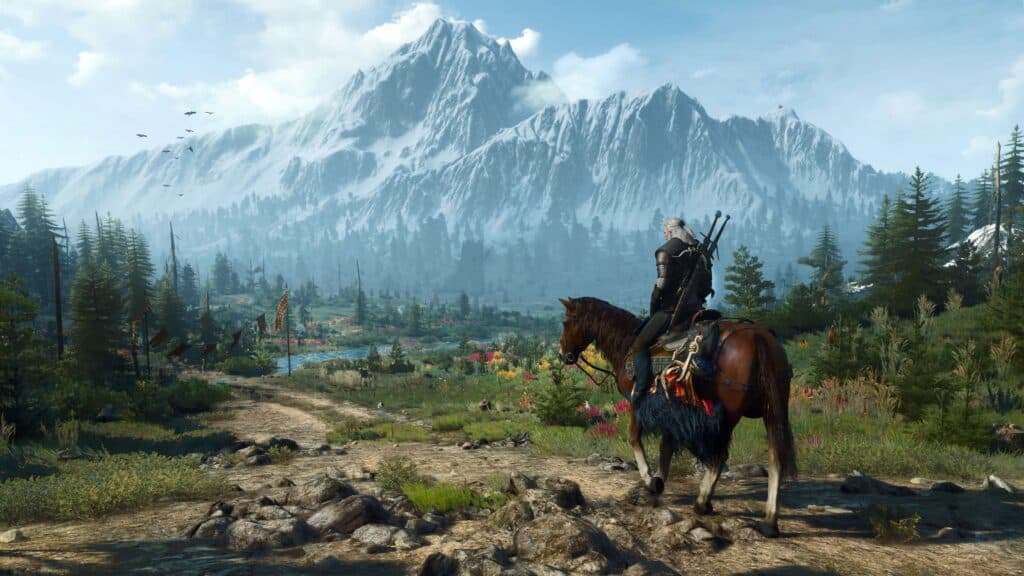
The second winner of the Game of the Year award is a title that, somehow, is just as captivating in 2024 as it was in 2015. CD Project Red’s The Witcher 3: The Wild Hunt is both an incredible open-world RPG and one of the pinnacles of video game narratives and quest design. Every deviation from the critical path in The Witcher 3 feels worthwhile, and those who have played the game know that there are many, many opportunities for Geralt to wander off the beaten path in search of carving out his own adventure. The combat and RPG progression systems are excellent and approachable, and they also have just enough depth for players to sink their teeth into them without ever feeling like they go over their heads.
Of course, the real star of the show is The Witcher 3‘s excellent narrative and voice-acting, which help it rank among the best story-driven RPGs in history. The popularity of The Witcher series on Netflix is arguably thanks to the greatness of The Witcher 3 and its critical reception, as well as the goodwill CD Projekt Red were able to earn from fans thanks to the studio’s continued support of the title and free next-gen upgrades. And, of course, lest we forget, the Gwent card game embedded within The Witcher 3 was so good that the title would end up becoming its one standalone release.
Overwatch (2016)
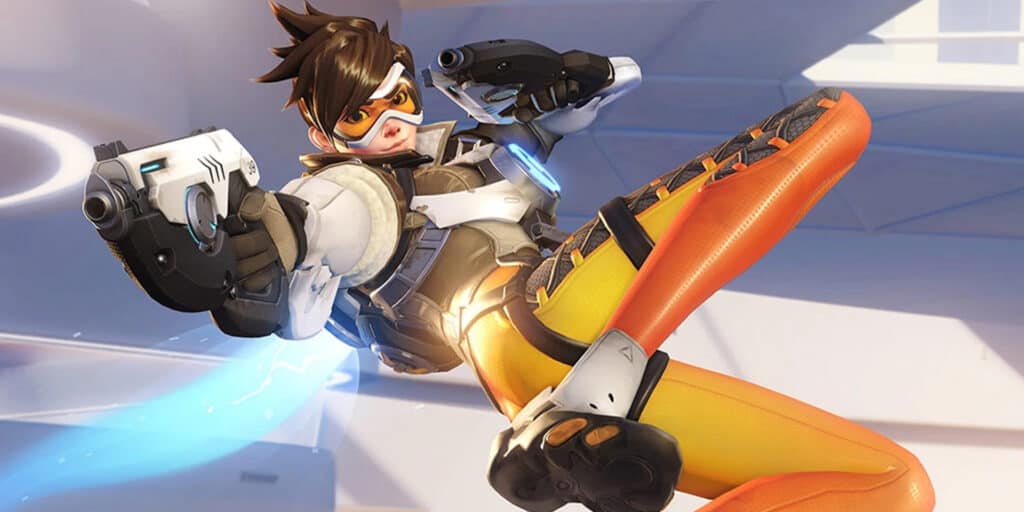
Overwatch would arrive at a time when both the MOBA genre and Blizzard would seem unstoppable. Taking the collectible hero mechanics of MOBAs like DOTA 2 and League of Legends and blending them with a first-person shooter would prove to be a popular idea, and Overwatch‘s release coincided with several other competing “Hero-Shooters”, a brand-new genre at the time. Ultimately, Overwatch would outperform and outlast every other hero-shooter thanks to its excellent foundation of compelling heroes with an excellent design, great balance, and addictive gameplay. Unfortunately, Blizzard would tarnish both its own reputation and the reputation of Overwatch with its ill-fated sequel, but for a moment Overwatch absolutely dominated the video game landscape.
The title’s win of the Game of the Year award in 2016 coincides with a massive paradigm shift within the industry, as the subsequent years would see more and more live-service games enter the fray for a piece of Overwatch‘s pie. Also coinciding with the release of Overwatch and its takeover of the gaming spotlight is the rise of eSports as a legitimized competitive sport, and it’s hard to argue against the game’s win at The Game Awards helping to cement its importance as a landmark video game.
The Legend of Zelda: Breath of the Wild (2017)
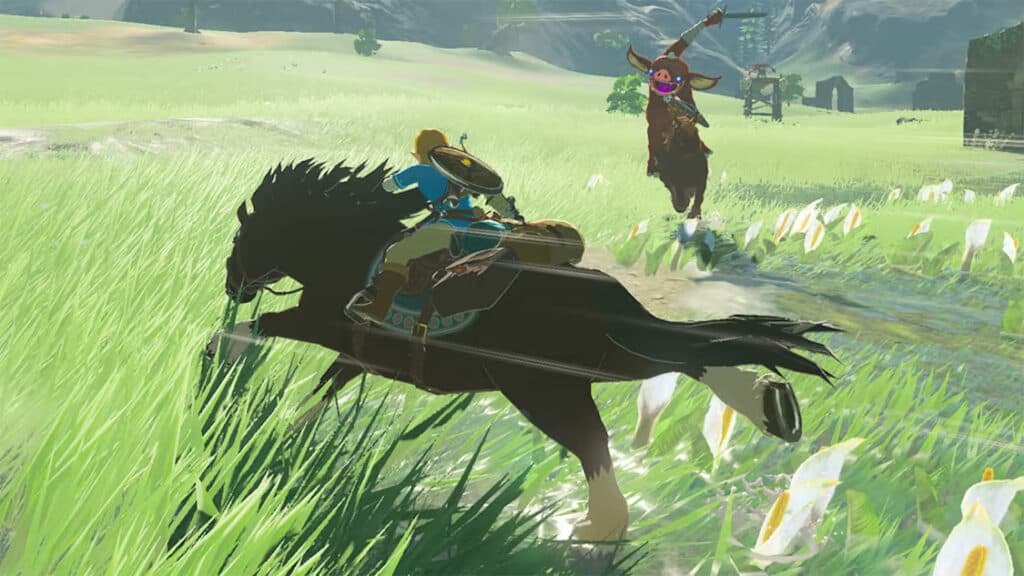
©Screenshot from Breath of the Wild – License
Breath of the Wild‘s transformation of the Zelda franchise makes its release one of the most significant gaming events of the 2010s, especially when compounded with the release of the Nintendo Switch. For the first time in more than a decade, a Nintendo console would launch with a new mainline Legend of Zelda game and Breath of the Wild is a perfect example of a killer app if there ever was one. Since the release of Ocarina of Time, the Zelda franchise has continued to abide by a somewhat predictable gameplay formula. But Breath of the Wild throws over a decade of franchise history out the window to provide players with a revolutionary open-world Zelda experience, and it’s safe to say that the series will never be the same.
With how instrumental Breath of the Wild was and still is to the Nintendo Switch’s staggering success, it’s no wonder that it would go on to become the best-selling game in the Zelda series. A Game of the Year award win for the title was all but guaranteed, as playing Breath of the Wild reignites that same feeling of limitless potential and sense of adventure that many gamers experienced playing The Legend of Zelda for the first time almost 40 years ago. A true masterpiece of open-world game design and a bold step into the future for the Zelda franchise, Breath of the Wild is about as close as gaming gets to perfection.
God of War (2018)
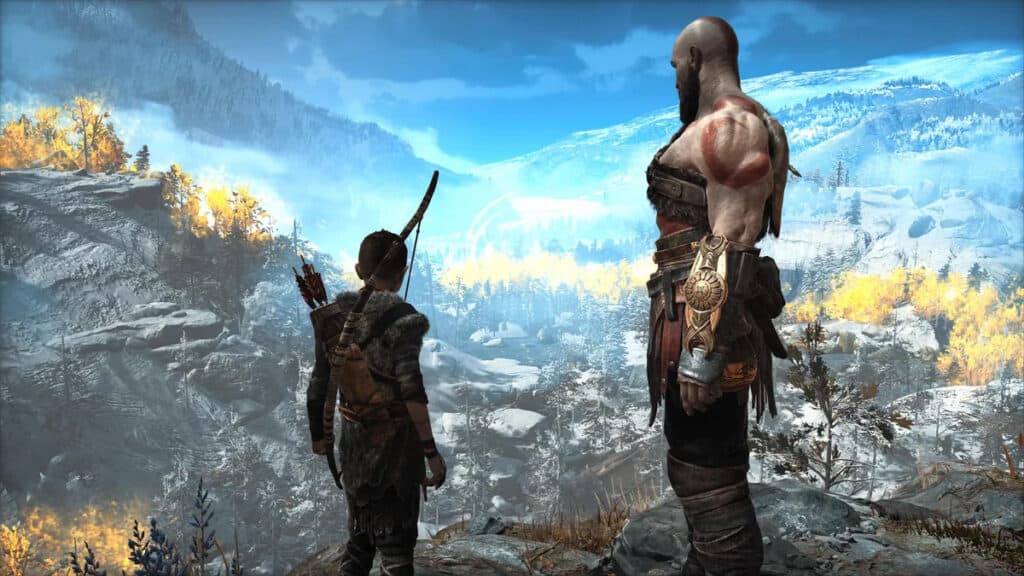
Rebooting the God of War franchise couldn’t have been an easy task to take on. Thankfully, the team at Sony Santa Monica proved to be more than up to the challenge, as evidenced by the incredible God of War (2018). Taking the caustic personality of Kratos from the original trilogy and softening it to tell a story of fatherhood and the futility of fighting against fate, God of War is a masterpiece of both narrative design and gameplay, and its win in 2018 is well-deserved. Regardless of the stiff competition that God of War faced in that year’s “Game of the Year” category (which includes the astounding Red Dead Redemption II and Monster Hunter World), few games that year and since have come close to the emotional highs of its story and enjoyable complexity of its gameplay.
See, God of War tells an incredible tale, but that’s only half of the equation. The other star of the show is Kratos’ new suite of abilities, which see him mostly wield an axe (and not obtain his signature Blades of Chaos until further in the adventure). The mechanical complexity of God of War‘s combat would be enough to carry a game on its own, but the fact that it nails both its narrative and its addictive action gameplay is enough to cement it as one of the greatest AAA games of all time. Between God of War and Marvel’s Spider-Man, Sony’s exclusives were practically unbeatable in 2018, but God of War‘s reinvention of a classic Sony franchise was so brilliant as to easily eke out a win.
Sekiro: Shadows Die Twice (2019)
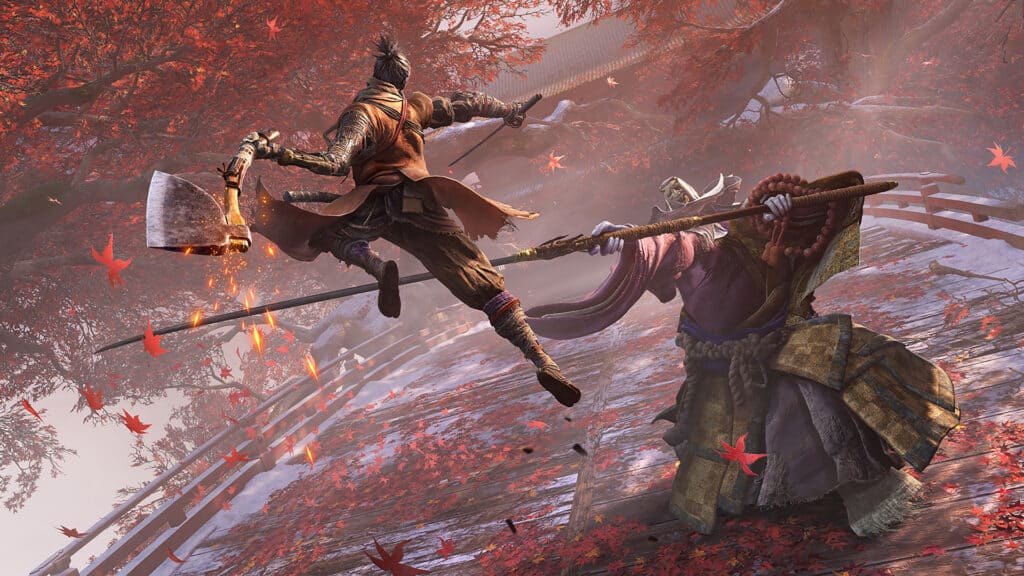
One sign of the brilliance of FromSoftware is the fact that the studio is the only one to have two Game of the Year Winners over the last decade. Sekiro: Shadows Die Twice builds on the Soulsborne foundation that helped to popularize FromSoftware to deliver a game that is both similar to and completely different from every other game in the developer’s catalog. Many players agree that Sekiro features the absolute best combat system of any FromSoftware game, and it’s hard to argue against the brilliance of the title’s more streamlined approach. Rather than have players obsess overbuilds and min/max characters in hopes of breaking the game, Sekiro gives players all the tools they’ll need at the game’s outset and simply forces them to master the mechanics or die.
Not only is Sekiro one of the best FromSoftware games, it’s also one of the most punishing. The parry-heavy mechanics of Sekiro‘s combat demand precision in a way that few other games do, and learning the rhythm and flow of sword combat can take a while to click. But, like the best action games, when Sekiro‘s combat “clicks”, boy does it click. Aside from its mechanical complexity and perfectly executed combat systems, Sekiro is yet another game that showcases FromSoftware’s absolute genius when it comes to environmental design and atmosphere. Sekiro demands near-perfection from its players, but the rewards that it gives in return are equally as satisfying.
The Last of Us Part II (2020)
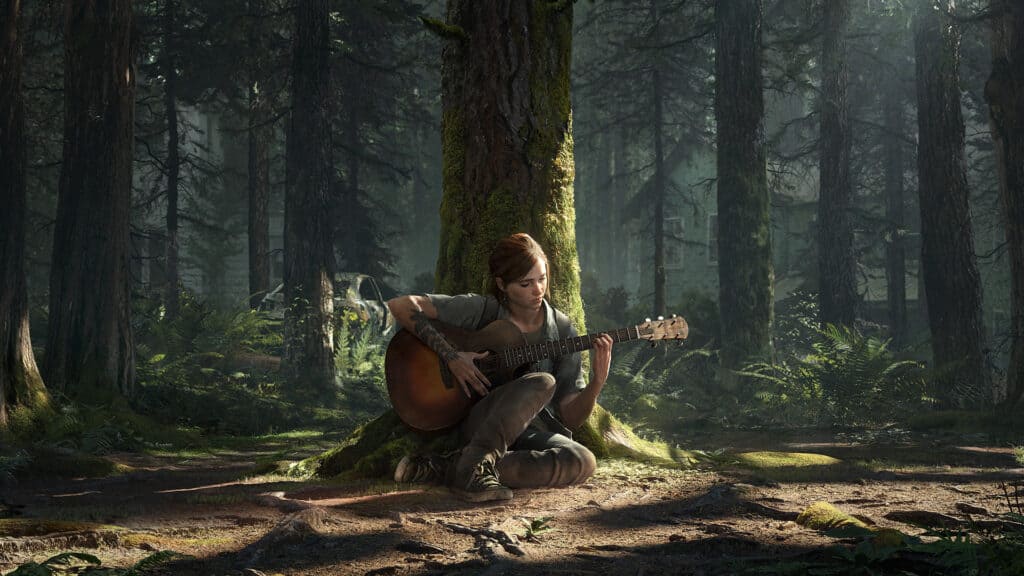
In terms of polarizing games to win the Game of the Year award, few titles (if any) can match the level of controversy that The Last of Us Part II caused. Ahead of the title’s release, key story elements that leaked changed the player perception of the title, leading to it being review-bombed and tons of false information about the game proliferating in online circles. Regardless of that controversy, though, The Last of Us Part II is another incredible Naughty Dog game that tells an emotionally complex and heart-wrenching tale about the futility of revenge. Like the first game in the franchise, TLoU Part II asks some very challenging questions and isn’t afraid to confront players with the uncomfortable truths that arrive as part of answering them.
But, like God of War before it, The Last of Us Part II is more than just its excellent and thought-provoking narrative. The gameplay refinements that the sequel makes over the original sees its stealth sections become more satisfying and less wonky, and its combat sandbox expands in some meaningful and transformative ways. Melee combat is absolutely visceral, and the game does a great job of making every encounter feel both meaningful and draining, calling into question whether the “enemies” the player fights are the antagonists or if it’s the players themselves. A masterclass in understanding how to avoid ludonarrative dissonance, and an incredible interactive experience to boot.
It Takes Two (2021)
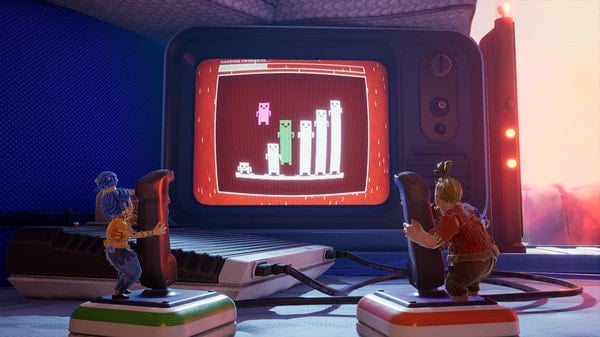
Josef Fares is one of the more enigmatic and outspoken game developers currently working today, and his body of work does a great job illustrating that he’s not afraid to push the envelope when it comes to the games Hazelight Studios makes. Similar to his previous games Brothers: A Tale of Two Sons and A Way Out, It Takes Two is ultimately a game about connection and cooperation, but like A Way Out it requires that two people play the game rather than having the player control both characters (as in Brothers). The end result is that It Takes Two‘s unique “co-op required” gameplay sees the player and a partner work through some of the most inventive cooperative multiplayer game design, and in the process, the title does a great job of communicating its core themes.
The titular duo that are part of the game’s title are a couple on the verge of a divorce, and by getting transported into the bodies of dolls and having to work their way through several challenges (each of which features new gameplay styles and mechanics for 2 players to partner up in) the couple learn something about the importance of communication and cooperation. Of course, the players also learn this lesson as well, establishing the couple at the center of the game’s narrative as the natural extension of the two players making their way through the game. It Takes Two features a brilliant and important message about the importance of understanding, communication, and cooperation, but beyond that it’s just a ton of fun to play and well-deserving of its Game of the Year win.
Elden Ring (2022)
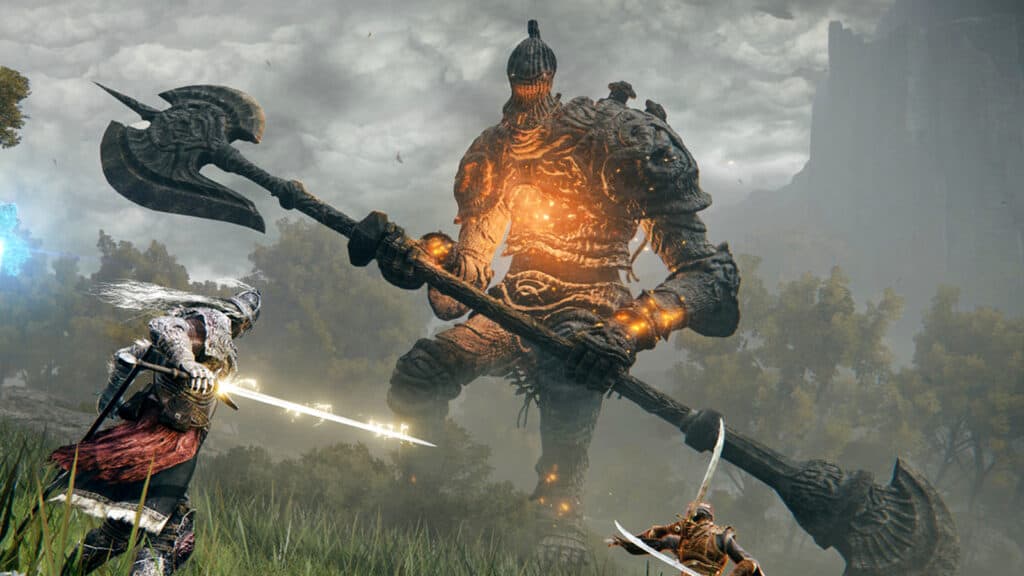
Perhaps the most important open-world game since Breath of the Wild, Elden Ring takes the tried-and-true FromSoftware formula and expands it into a near-limitless open-world sandbox rife with adventure. The Soulsborne games have buildcraft and freedom of player expression as cornerstones of their gameplay loop, but Elden Ring takes those ideas a step further to offer the player a staggering amount of freedom and customization in how they build out their ideal character. Not only that, the open-world format of The Lands Between means that players can simply go somewhere else and find a new adventure to tackle if they find themselves bumping up against a skill block.
Exploring The Lands Between in Elden Ring is undoubtedly the star of the show, as FromSoftware once again proves that they are one of the best studios working today when it comes to environmental design and art direction. Elden Ring’s open world is incredibly dense, with every corner almost always leading to some worthwhile excursion and a new branching path for adventure. Somehow, FromSoftware was able to make every single one of these spaces stand out as a memorable part of the player’s journey, and there’s not a single second of experiencing The Lands Between that won’t stick with the player. Not just the best game of 2022, Elden Ring is one of the best games of all-time.
Baldur’s Gate 3 (2023)
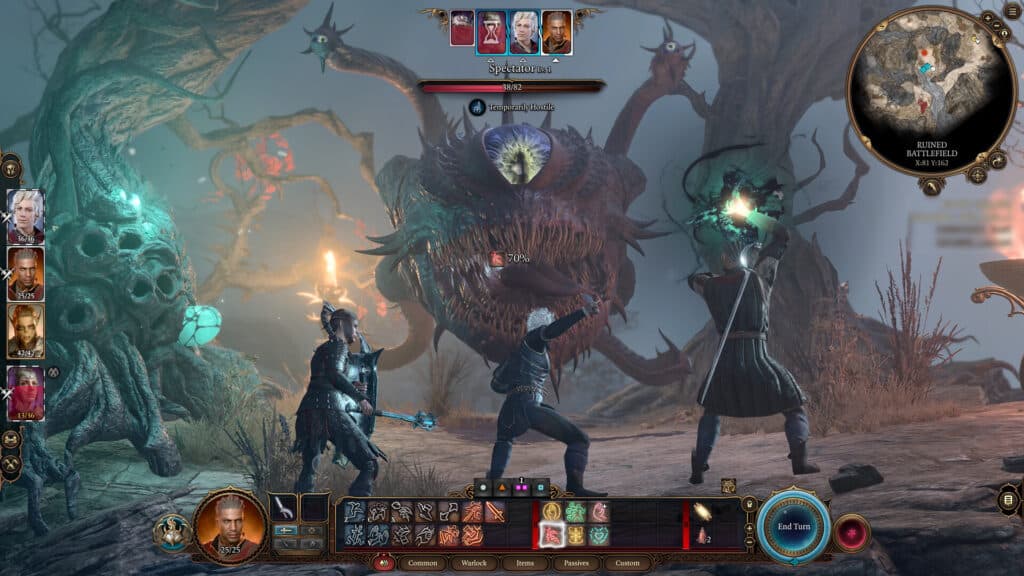
Back in 1998, Bioware would make a name for themselves by crafting what many consider to be the first modern CRPG — Baldur’s Gate. After working on the incredible Divinity: Original Sin series, Larian Studios would get the opportunity to revive the Baldur’s Gate franchise with a highly anticipated third entry, and the 25-year wait was more than worth it. Baldur’s Gate 3 would end up winning the Game of the Year award not just at The Game Awards, but from nearly every major publication. And, as one might expect, playing Baldur’s Gate 3 makes it easy to see why. From its excellent implementation of the Dungeons & Dragons license and ruleset to its incredible characters and writing, Baldur’s Gate 3 is about as close to a perfect RPG as you can get.
It’s the game’s RPG mechanics that make it shine, offering up a staggering number of potential outcomes based on a player’s choices, their build, their party members, and their interactions with NPCs. The world of Baldur’s Gate 3 feels like it’s an actual place populated with living, breathing individuals, and the richness of that world gives the game a level of immersion that few other titles in history have been able to achieve. Additionally, BG3‘s combat is on par with some of the best turn-based RPGs of all-time, giving players a considerable amount of freedom and opportunities for strategy and expression with its masterful understanding of the D&D mechanics.
The image featured at the top of this post is ©Baldur's Gate key art.
